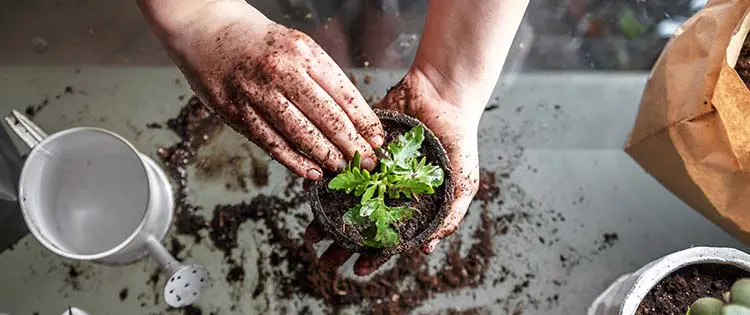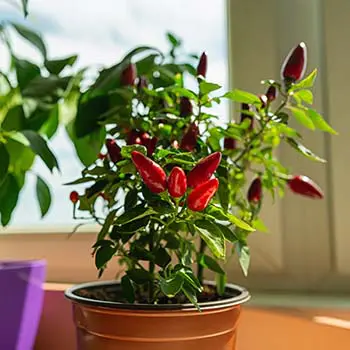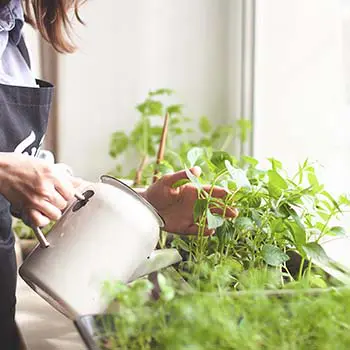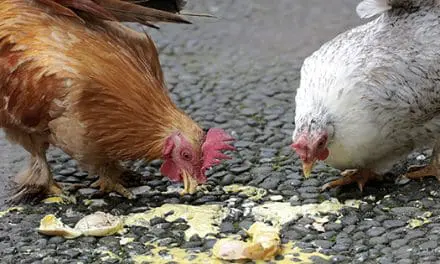Oh, the weather outside may be frightful and we’re yearning for our beautiful greenery and our sunny days already! The thing is, many of us will turn to indoor garden for this time of the year. While some of us may have had success with indoor gardening, it can be tricky.
Today, we’ll go into many reasons why you may want to avoid indoor gardening and simply wait until the outdoors are a little more willing to cooperate. Let’s get started.
Indoor Pollination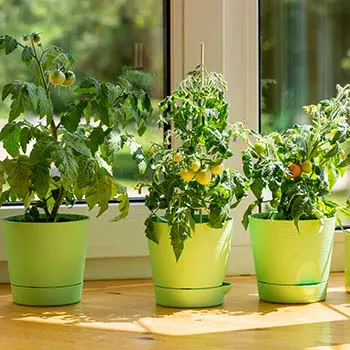
If you have a production plant or you’re trying to gain seeds from the plants you’re fostering indoors, you’ll need to pollinate. And, let’s be honest, the last time you had a bee in your house you were probably pretty interested in getting it back out of your house.
While hand pollinating isn’t impossible (in fact, it’s preferable in some plants and for many crossbreeds!), it can be a time-consuming issue. It can also turn into a long process for some sensitive plants which may be more difficult to pollinate in general. Simply put, bugs are better at it than we are for many reasons, but we really don’t want to unleash bugs in our homes, either.
If all you want is a pretty annual flower over the holidays, this may not be as much of a concern for you. If you’re looking to carefully pollinate your favorite rare plant; it does become more of an issue.
Can You Handle the Smell?
The fresh green scent of snapped vines and trimmed plants brings us all to spring and early summer when we’re diligently pruning our gardens and making them as pretty as a picture. Petrichor, fresh fertilizer, and the vaguely acidic scent of damp blood or bone meal are all welcome smells during the outdoor gardening process.
Our key point there is the word “outdoor”. The simple issue is that some plants may have too much odor in their foundation for indoor gardening, that is to say nothing of the plants themselves.
Related: How To Grow Tomatoes Indoors
While this isn’t an issue with something like a sweet marjoram plant on a windowsill, trying to grow cabbages out of season in your home can become a very intense experience very quickly.
Before you invest in seriously expensive vegetable growing towers or even pots for potted plants, consider how much scent your plant(s) are likely to give off. Personally, I’ve potted daffodils on my kitchen windowsill in my early days (some of you are already laughing) only to find that they quickly become musty and as soon as they start to wilt, they will mildew and mold any wood and windowsill anywhere near them.
While your plants may look gorgeous or even smell gorgeous for a time, personally, I would prefer not to deal with a peppery scent of savory every time I walk into a kitchen. That may differ with you, but it is a very important point to consider.
Dealing with Drippy Pans and Other Water Issues
Here’s where things get heavy, and we mean that literally.
Your plants are not going to be lightweights. Even small pots weigh a substantial amount when fully saturated. While your windowsills and shelves can probably handle a few, it can be heartbreaking and a sudden reminder of fixtures not lasting forever if they break and collapse under the weight of your plants.
The best way to test this is to try putting scale weights approximately the same weight as your intended plants on your intended shelf in summer. If you don’t see cracks or the shelf pulling away from the wall by the time you’re planting, you’re probably fine. You may also consider shelf brackets attached to the wall beneath the windowsill or shelf for extra support.
Related: 10 Fruits And Veggies To Dehydrate For Long-Time Storage
On top of this, you may also be looking at water rot and damage. When your plants are outside, the water naturally dissipates. It’s going to continue to try to do the same thing indoors, but there isn’t anywhere for this water to go except all over your floors or down inside your walls.
If you’re a careful gardener and don’t mind having a wet/dry vac (or a sink) handy at a moment’s notice, you can deal with most of these issues. However, they are important to note since I’m sure we’ve all accidentally knocked down a windowsill or two in our time with one too many herbs planted up there. Not looking in any mirrors here.
Light and Making It Work
Of all the possible problems with your new, gorgeous indoor garden, the biggest may be the distribution of natural light within your home. Or, perhaps, what actually makes it into your windows during this time of the year.
While this can be fixed with grow lights and lighting made specifically to help assist indoor plants (that are not specifically growing lights), it does become difficult to deal with the lower light per day that this wintery season gives us. Yes, you can probably grow herbs and some cool-weather flowers, perhaps even some vegetables. Yet you won’t be able to grow sun and heat-loving vegetables and fruits, such as tomatoes and peppers until things warm up outside… or you invest in some seriously pricey work areas.
That said, you can make it happen. You can do it. But you’ll be doing a lot of lighting and arranging work behind the scenes to bring it together. While some people want to invest in that, I’ll be in my kitchen trimming my windowsill rosemary to look like a tiny evergreen tree to celebrate the holidays. I’ll probably decorate Herbert, too, while I’m at it. He deserves to be as festive as the rest of us, right?
Are you a big fan of growing indoors? Have you considered some of these risks or others? Did we miss a talking point that you would like to see discussed? We’d love to hear from you. Leave your comments in the section down below and remember, Happy Gardening! Even during the chilly, dark months of the year!
You may also like:
Read This Before Harvesting Rainwater
Native American Remedies That We Lost To History (Video)
How To Make The Hoover Stew Of The Great Depression

